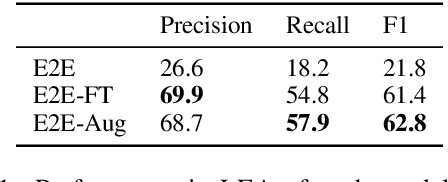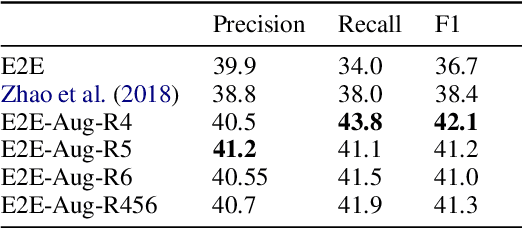Adapting Coreference Resolution for Processing Violent Death Narratives
Paper and Code
Apr 30, 2021



Coreference resolution is an important component in analyzing narrative text from administrative data (e.g., clinical or police sources). However, existing coreference models trained on general language corpora suffer from poor transferability due to domain gaps, especially when they are applied to gender-inclusive data with lesbian, gay, bisexual, and transgender (LGBT) individuals. In this paper, we analyzed the challenges of coreference resolution in an exemplary form of administrative text written in English: violent death narratives from the USA's Centers for Disease Control's (CDC) National Violent Death Reporting System. We developed a set of data augmentation rules to improve model performance using a probabilistic data programming framework. Experiments on narratives from an administrative database, as well as existing gender-inclusive coreference datasets, demonstrate the effectiveness of data augmentation in training coreference models that can better handle text data about LGBT individuals.
 Add to Chrome
Add to Chrome Add to Firefox
Add to Firefox Add to Edge
Add to Edge